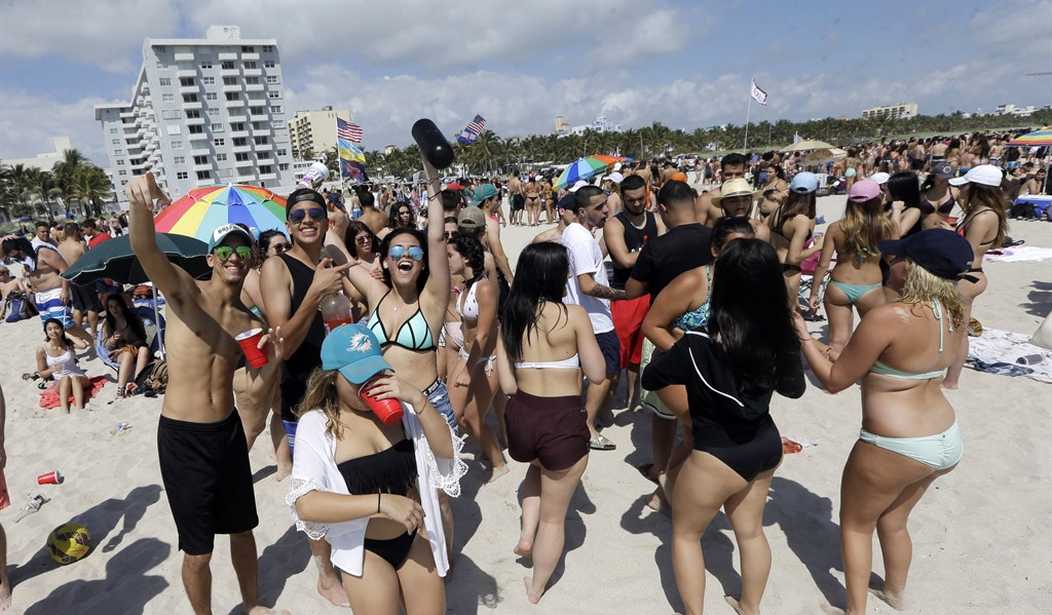Follow the Science
One of the things that my friends and I have been discussing throughout the various quarantines and lockdowns is the fact that we all seem to want to go do something as soon as the government tells us that we can’t. I mean, almost immediately.
For example, we had been open here in Arizona for a few months when a predictable spike in COVID cases occurred. I’d gone out several times when we first opened back up in the interest of stimulating the local economy. That was fun, but I settled down again after the first month. I hadn’t been out to socialize much at all when our idiot mayor imposed a curfew. I kid you not, the day it went into effect I was in the mood to party.
Reactions like that probably have more to do with the fact that I am an American and prefer that my government leave me the hell alone. When you factor in that I’m an Arizonan, the urge is stronger. There’s a lot of contrarian stuff going on here.
There is, however, some science behind being locked down and wanting to do something pleasurable. As we are always being told to follow the science, here we go.
The prolonged traumatic, or “chronic toxic,” stress that most people have been experiencing throughout the pandemic makes it more difficult to keep desires in check, and it in turn promotes illogical pleasure-seeking, said Dr. Robert Lustig, a professor emeritus of pediatric endocrinology at the University of California, San Francisco, and author of “Metabolical.” In scientific terms: When brains are flooded with the stress hormone cortisol on a long-term basis, it inhibits the function of the prefrontal cortex, leading to excessive activation of the “reward center” of the brain — triggering the excessive baking, drinking, smoking and shopping that filled the idle hours of 2020.
“Dopamine is the reward neurotransmitter. It is held in check by the prefrontal cortex. When that inhibition is released, the reward center looks for hedonic stimuli,” Lustig said. “Those can be chemical — cocaine, heroin, nicotine, alcohol, sugar — or behavioral — shopping, gambling, internet gaming, social media, pornography.”
I concede that some pleasure-seeking is unhealthy, but I don’t know that I would ever call it “illogical.” That just sounds like something that a constipated liberal journo would say. Those people loathe fun.
While there are no fool-proof excuses for overly-indulgent behavior, it is nice to know that we can toss a little of the blame over to pesky brain chemicals. Neurochemistry has been a scapegoat for a variety of other behaviors, why not for the almost bacchanalian lust for carbohydrate consumption (beer is my favorite carb)? It provides a sound explanation for why so many began baking bread as if they were cooking meth that they needed for themselves:
But what exactly about baking makes it so suited for quarantine? Was it the diversion of dough-kneading or something more hedonistic? While total cookbook sales in the U.S. grew by 15 percent in the first nine months of the year, sales of bread-specific books grew by 145 percent, according to NPD Group data. That’s 200,000 more bread cookbooks than were sold in 2019. Meanwhile, sales of cookbooks about vegetarian and other comparatively healthy cuisines took a hit in March and April.
The preparation of baked goods in quarantine was clearly driven by more than just the joy of cooking, Lustig said. “Baking means carbohydrates and particularly sugar — both for diversion and for addiction. And aren’t they really the same?” he said.
So get out there and get a sourdough fix, you freakin’ addicts.
Your brain is making you do it.
___
Kruiser on Parler
Kruiser on MeWe
Kruiser on Twitter
Kruiser on Facebook
PJ Media Senior Columnist and Associate Editor Stephen Kruiser is the author of “Don’t Let the Hippies Shower” and “Straight Outta Feelings: Political Zen in the Age of Outrage,” both of which address serious subjects in a humorous way. Monday through Friday he edits PJ Media’s “Morning Briefing.” His columns appear twice a week.










Join the conversation as a VIP Member